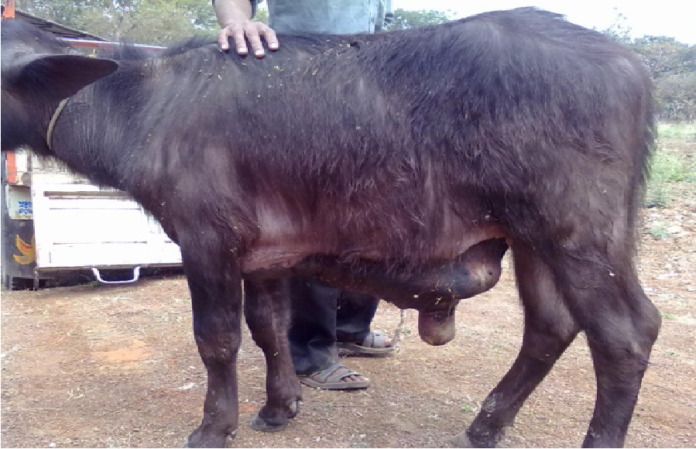Preventing Obstructive Urolithiasis in Male Calves: Prophylactic Measures for a Healthy Future
Tushar Jain1 and Manisha2
1Veterinary Officer, Civil Veterinary Hospital Kathgarh, Department of Animal Husbandry, Punjab
2 Division of Parasitology, ICAR-Indian Veterinary Research Institute, Izatnagar, 243122, U.P. India.
Introduction
Obstructive urolithiasis, commonly known as urinary stones, is a distressing condition that affects male calves in the livestock industry. These stones can cause blockages in the urinary tract, leading to severe pain, discomfort, and even death if left untreated. However, with proper prophylactic measures, this condition can be prevented, ensuring the well-being and longevity of these young animals.
Understanding Obstructive Urolithiasis
Obstructive urolithiasis occurs when crystals or stones form in the urinary tract, obstructing the flow of urine. Male calves are particularly susceptible due to their anatomy, as their urethra is longer and narrower than females. The primary cause of this condition is an imbalance in the diet, leading to the accumulation of minerals such as calcium, phosphorus, and magnesium in the urine.
Prophylactic Measures for Prevention
- Balanced Nutrition: Providing a well-balanced diet is crucial in preventing urolithiasis. Calves should receive a diet that meets their nutritional requirements, including appropriate levels of calcium, phosphorus, and magnesium. Consult with a veterinarian or animal nutritionist to formulate a diet that minimizes the risk of stone formation.
- Adequate Water Supply: Ensuring a constant and clean water supply is essential for preventing urolithiasis. Sufficient water intake helps dilute the urine, reducing the concentration of minerals and preventing stone formation. Monitor water sources regularly to ensure they are free from contaminants.
- Forage Quality: High-quality forage, such as grass or hay, should be a significant component of the calf’s diet. Forages provide a good source of fiber, which aids in maintaining proper rumen function and urine pH balance. Avoid feeding excessive amounts of grain or concentrates, as they can contribute to stone formation.
- Mineral Supplementation: While an imbalance of minerals can lead to urolithiasis, appropriate mineral supplementation can help prevent it. Consult with a veterinarian or nutritionist to determine the correct mineral supplementation for your calves, ensuring that it aligns with their specific dietary needs.
- Acidification of Urine: Acidifying the urine can help dissolve existing stones and prevent new ones from forming. This can be achieved by adding substances like ammonium chloride to the diet, which acidifies the urine and reduces the risk of stone formation. However, it is crucial to consult with a veterinarian before implementing any acidification measures.
- Regular Monitoring and Veterinary Care: Regular monitoring of the calves’ health is essential to detect any signs of urolithiasis early on. Watch for symptoms such as straining to urinate, blood in the urine, or discomfort. If any signs are observed, seek immediate veterinary care to prevent further complications.
Conclusion
Preventing obstructive urolithiasis in male calves requires a proactive approach that focuses on balanced nutrition, adequate water supply, and careful management. By implementing these prophylactic measures, livestock farmers can significantly reduce the risk of urinary stones, ensuring the well-being and productivity of their calves. Remember, early detection and veterinary intervention are crucial in managing this condition effectively. Let’s work together to provide a healthy future for our male calves


